Lately I have not been using compost tea in my garden. Reading articles like this really has me considering doing a side by side experiment of my own. I'm curious how the compost tea would compare to a soil mix that already has Vermi-compost in it. I used to use compost tea often but then just starting adding the castings to my soil mix. My feelings are that some of the Hype with compost tea are related to the way the testing is setup. Obviously adding castings to an otherwise soil-less mix would improve the yield... But how much of that is the castings and how much of that is the compost tea? I'm always after the best results, but the labor involved in brewing compost tea and cleaning the reactor is just too much. Especially when compared to just mixing castings into a soil mix. This labor and cleaning has kept me from being a full blown Compost tea enthusiast.
What do you think? Mixing the Vermicompost into the soil, or using compost teas? When is compost tea more effective?
For Reference: The plants tested were grown in Metro Mix 360 from Sun Gro Horticulture
Ingredients:
Formulated Canadian Sphagnum peat moss, coarse perlite, bark ash, starter nutrient charge (with Gypsum) and slow release nitrogen and dolomitic limestone.
Just a Quick Excerpt From
Vermiculture Technology: Earthworms, Organic Wastes, and Environmental Management
This is from chapter 15 Section 5 Page 246
V. CONCLUSIONS ON EFFECTS OF VERMICOMPOST
TEAS ON GROWTH AND YIELDS
It is clear from these research data that aqueous solutions from vermicomposts (teas) can promote the germination, growth, flowering, and yields of crops significantly and considerably. Identification of the mechanisms involved in these responses needs further research. Clearly, some of the soluble materials such as PGHs that can pass from vermicompost into the teas during the tea-brewing process and are taken up into plants must be responsible for some of the growth effects.
Issues important in aqueous extracts from vermicomposts include the following:
• Aeration is very important during the aqueous extract-brewing process.
• PGHs, such as indole acetic acids, gibberellins, and cytokinins, are very soluble and can pass readily in to teas. These are produced by the extremely large populations of microorganisms in the vermicompost.
• PGRs, such as fulvic and humic acids, can pass into the teas as fine particulate matter. During vermicomposting fulvic and humic acids are produced as the organic matter stabilizes through earthworm activity.
The following factors can influence growth.
• Combinations of PGHs and PGRs can pass into the teas and persist in soil longer than the separate materials. PGHs become absorbed onto the particulate humates and fulvates and are released slowly to promote plant growth throughout the season.
• Soluble plant nutrients, particularly N (as nitrates), soluble P, K, Ca, and Mg. All of the important nutrients in vermicomposts are readily soluble and can pass easily into the teas from vermicomposts.
• Microorganisms may continue to produce PGHs and PGRs when they reach soils as
soil drenches. Hence, it is important to keep the teas aerobic and microbially active so that PGHs are still produced in the teas.
• Soluble free enzymes may continue nutrient transformations. These promote conversions of nutrients into forms readily taken up by plants.
Clearly, from the evidence in this chapter these aqueous extracts, or teas, from Vermicomposts can have dramatic effects on plant germination, growth, and yields. They will provide an important tool for organic growers and farmers who need to avoid the use of inorganic fertilizers in their crop production; teas can be easily applied to organic crops as soil drenches.

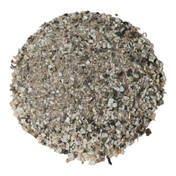
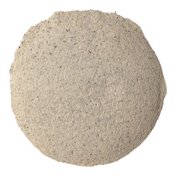
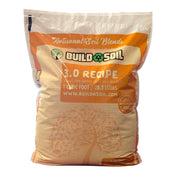
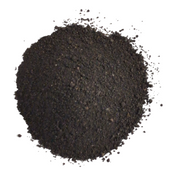
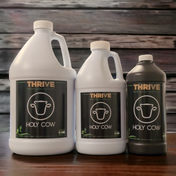
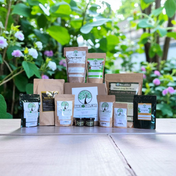
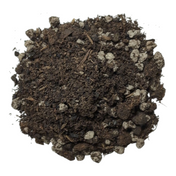
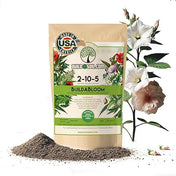
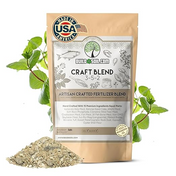
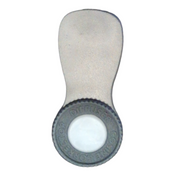
1 comment
I bought this book a couple years ago and read it cover-to-cover 3x and followed that up by looking at the research by Dr. Clive A. Davis, Dr. Norman O. Arancon and Rhonda Sherman and other authors that contributed research papers.
For example of you look at Dr. Avancon’s page at the University of Hawaii – Hilo (http://hilo.hawaii.edu/academics/cafnrm/NormanArancon.php) you will find his Publication List (http://hilo.hawaii.edu/academics/cafnrm/documents/PublicationLst-Arancon.doc) which you can copy the article title, enter that into a search engine and in most cases you can find it.
The same is true with Dr. Davis and Ms. Sherman. Another name you look for is Dr. Yasmin J. Cardoza’s work at North Carolina State University. Her work in the area of insect suppression using vermicompost is well worth one’s time and effort.
HTH
CC